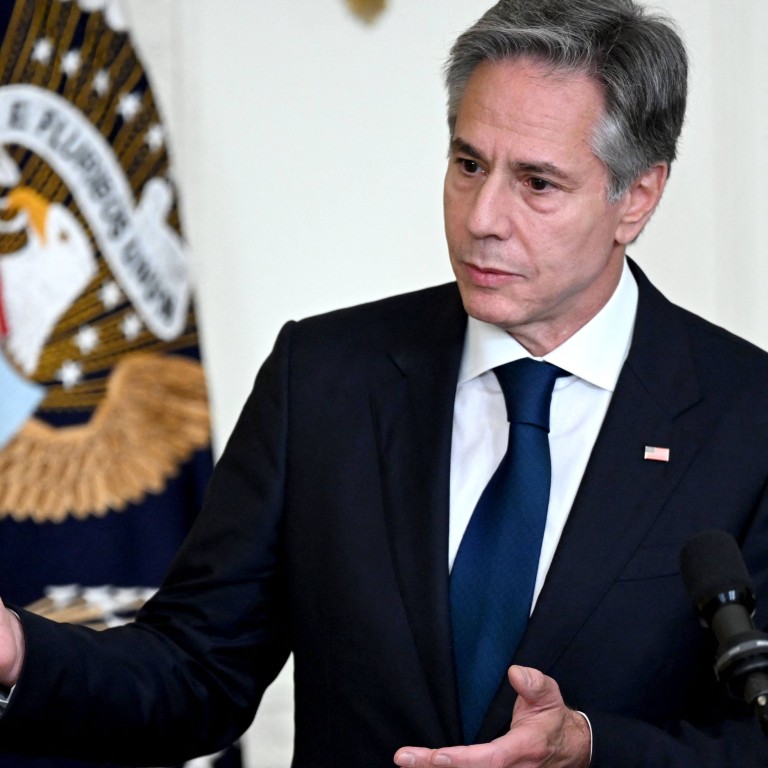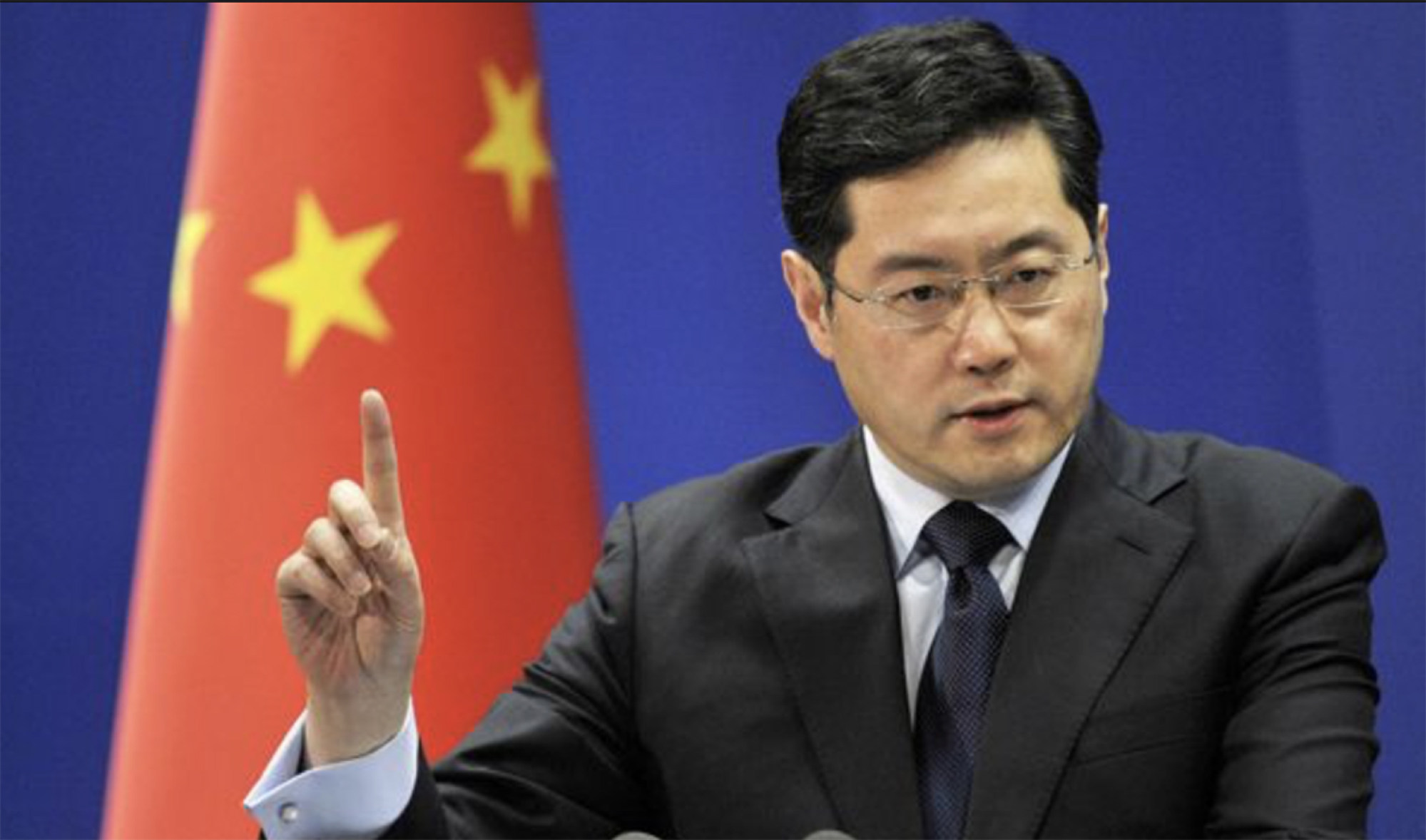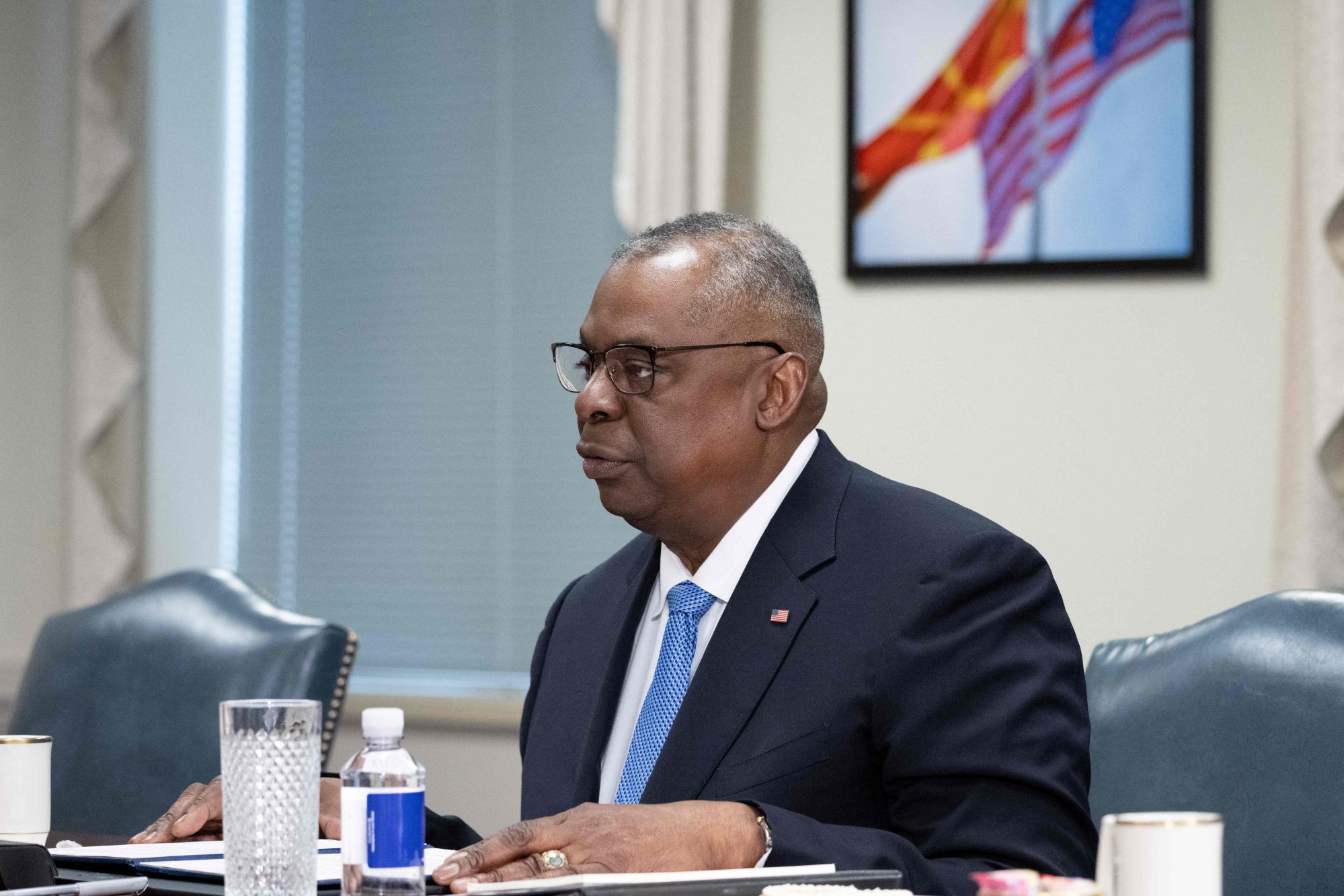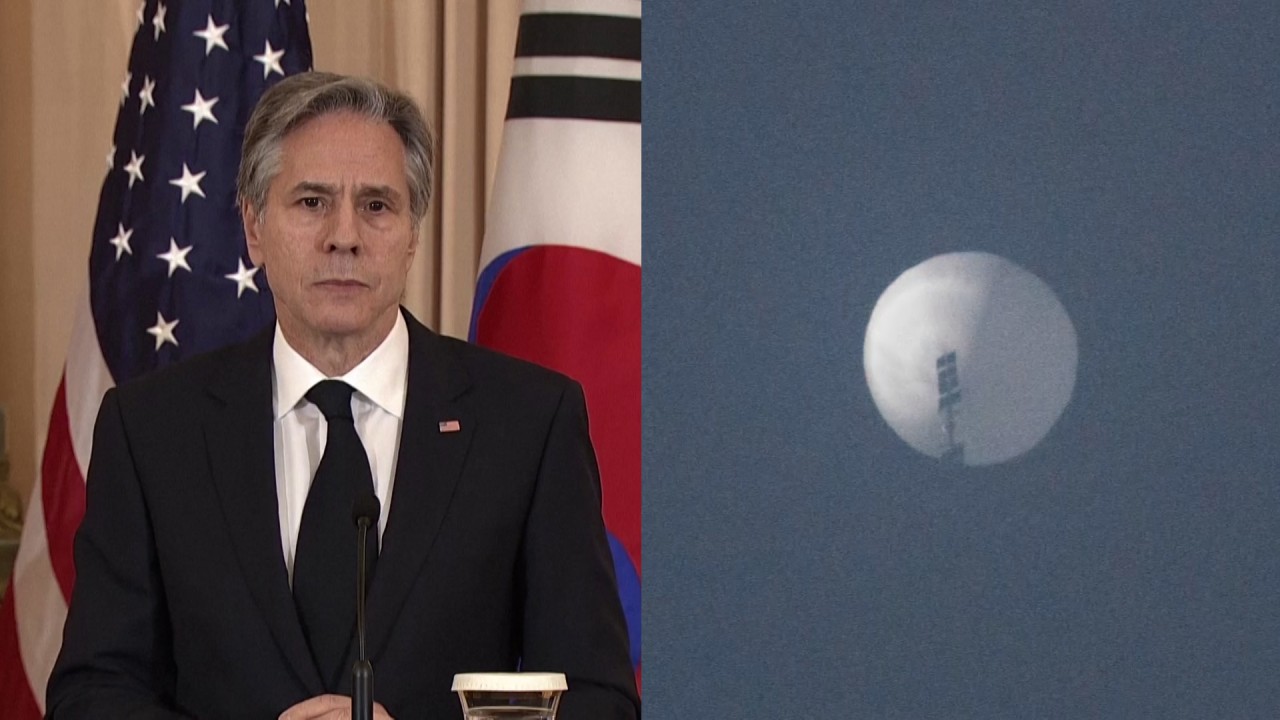
US-China relations: Secretary of State Antony Blinken’s visit confirmed after phone call with China’s Qin Gang
- The US secretary of state will discuss the importance of keeping open lines of communication and discuss potential areas of cooperation, Washington says
- In earlier conversation, Foreign Minister Qin Gang urged US to ‘show respect’ and stop undermining China’s interests
US Secretary of State Antony Blinken will visit Beijing on Sunday and Monday, the two sides have confirmed, a move that could put bilateral relations on better footing after months of acrimony.
While in Beijing, Blinken will meet senior officials to discuss the importance of maintaining open lines of communication to responsibly manage the relationship, the State Department said. He will also raise bilateral issues of concern, global and regional matters, and potential cooperation on shared transnational challenges, according to spokesman Matthew Miller.
It will be the latest high-level exchange between the two sides in recent weeks amid a US push for reengagement, and a moment that one analyst said offered a chance to bring “a modicum of predictability” to the relationship.
Blinken cancelled a planned visit to China in February after an alleged Chinese spy balloon was shot down over US airspace.

The Chinese foreign ministry also confirmed the visit would go ahead, hours after a phone call on Wednesday between Blinken and Qin Gang, who told Washington’s top envoy that the US should “show respect” and stop undermining China’s sovereignty, security and development interests.
He also urged Washington to “show respect, stop interfering in China’s internal affairs and stop undermining China’s sovereignty, security and development interests in the name of competition”.
US lawmakers push for Tsai Ing-wen to attend Apec summit
Beijing sees self-ruled Taiwan as part of its territory and regards the issue as “the core of the core interests”. Countries that have diplomatic ties with Beijing, including the US, acknowledge the existence of the one-China principle that holds Taiwan to be part of China, but some may not explicitly agree with it.
On Wednesday, Blinken “discussed the importance of maintaining open lines of communication to responsibly manage the US-PRC relationship to avoid miscalculation and conflict, [and] addressed a range of bilateral and global issues”, according to Miller.
According to the Chinese readout, Qin told Blinken that the responsibility for new difficulties and challenges in the relationship since the start of the year was “clear”.
He said Beijing had always followed the principles of mutual respect, peaceful coexistence and win-win cooperation in handling relations with Washington.
Despite the balloon incident and other disputes, there have been signs of a thaw in relations in recent months, with more high-level engagement between the two powers.
“In the course of those discussions, both sides have indicated a shared interest in making sure that we have communication channels open and that we do everything possible to reduce the risk of miscalculation,” Campbell said.
“Chinese counterparts have used the words ‘to stop the downward spiral in the relationship’, and we have often noted … our interest in reducing the risk of miscalculation.”
China should set up US communication channels: top Biden aide
The Chinese delegation responded by saying that Austin had “made several false accusations” in his remarks and Washington should not tell China what to do.

Sourabh Gupta, a senior fellow at the Institute for China-America Studies in Washington, said the differences that have been playing out publicly would not necessarily doom Blinken’s meetings in Beijing, as the situation may provide an opportunity for positive domestic messaging by the Chinese government.
Biden might also be able to boast that he has delivered on his oft-stated goal of putting “guardrails” around the bilateral relationship, Gupta said.
“There may be rough talking by both sides publicly, and more likely to emanate from Beijing’s side for domestic political audiences, but … what they privately communicate will hold value to both sides,” Gupta said.
“Biden wants to begins locking down some of the promised ‘guardrails’ so as to devolve a modicum of predictability and balance to ties,” he added. “Instability or uncontrollable tensions in ties would hand his harder-line Republican opponents a handy beating stick.
“If he can dilute the salience of China in the 2024 cycle, without appearing to go ‘soft on China’, it stands to Biden’s benefit.”
Why Taiwan’s Tsai Ing-wen may not attend Apec summit in US after all
Eurasia Group analysts Clayton Allen and Anna Ashton, meanwhile, said Blinken’s trip would offer more of “a managed decline” in the relationship than stability or predictability.
Beijing’s main motivation, they said in a research note, was “to set the stage” for Chinese President Xi Jinping to attend the Asia-Pacific Economic Cooperation (Apec) Leaders’ Summit in San Francisco in November.
Biden did not attend the 2022 Apec summit in Bangkok last year.
“The decision, poorly received by some regional leaders, allowed Xi to exert greater influence,” the Eurasia analysts said. “With the US hosting this year’s summit, Biden has a chance to regain ground, so Xi will be keen to attend.”



